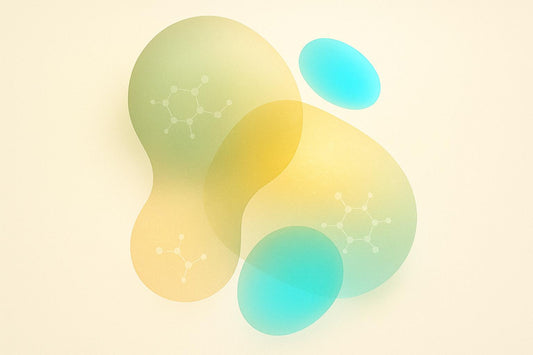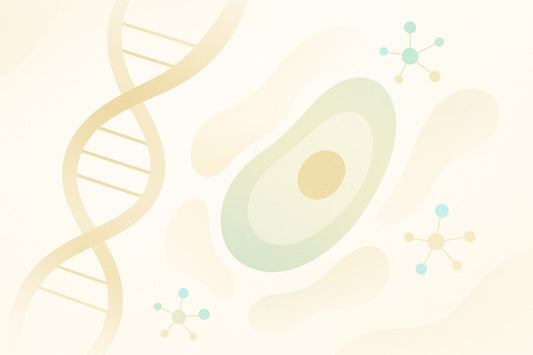Suchergebnisse
-

Prebiotics and Systemic Inflammation: What Studies Show
Prebiotics could be a game-changer in managing chronic inflammation and promoting healthy aging. Here's the quick takeaway: What are Prebiotics? Non-digestible fibers that feed beneficial gut bacteria, found in foods...
-

Curcumin vs. Inflammation: What Science Says
Curcumin is a natural compound found in turmeric that fights chronic inflammation, a key factor in aging and diseases like arthritis, diabetes, and heart disease. Here’s what you need to...
-

Machine Learning for DNA Methylation Age Prediction
DNA methylation patterns are transforming how we measure aging, and machine learning is at the center of this shift. Here's what you need to know: DNA methylation involves chemical changes...
-

Strength Training vs. Cardio for Heart Health
Want what's good for your heart? Mix weight lifting and heart-moving workouts. Weight Lifting: Cuts heart disease risk by 17%, betters body shape, drops bad fat in the blood, and...
-

5 Key Outcomes from Senolytic Combination Trials
Senolytic combination therapies are showing promise in addressing aging and age-related diseases by targeting harmful senescent cells. Here are five key takeaways from recent research and clinical trials: Improved Bone...
-

How Micronutrient Deficiency Impacts Aging
Micronutrient deficiencies can speed up aging by disrupting cell repair, weakening immunity, and increasing oxidative stress. Here’s why it matters and how to fix it: Key Nutrients: Vitamin D, magnesium,...
-

Resveratrol and Inflammatory Biomarkers: Long-Term Effects
Resveratrol may help reduce inflammation over time, supporting healthy aging. Research shows it can lower key inflammatory markers like C-reactive protein (CRP) and tumor necrosis factor-alpha (TNF-α). However, its effects...
-

How Study Design Impacts Longevity Supplement Meta-Analyses
The quality of a study determines the reliability of its conclusions about longevity supplements. Poorly designed studies can lead to misleading results, even in meta-analyses, which are considered the gold...
-

Resveratrol and Cardiovascular Health: Clinical Evidence
Resveratrol, a compound found in red wine, grapes, and certain foods, is gaining attention for its potential heart health benefits. Here's what you need to know: Blood Pressure: High doses...
-

Boswellia and Chronic Inflammation: Key Facts
Boswellia, also known as Indian frankincense, is a natural resin derived from the Boswellia serrata tree. It has been used for centuries to reduce inflammation and support overall health. Modern...
-

Genetic Variants Linked to Metabolic Syndrome
Metabolic syndrome is a condition that increases the risk of heart disease, diabetes, and stroke. It affects about one-third of U.S. adults and is diagnosed when three or more of...
-

Senolytics and Aging: Long-Term Effects on Cells
Senolytics are compounds that target and remove senescent cells - damaged cells that stop dividing but linger in the body, causing inflammation and contributing to aging and diseases like cancer,...
-

TGF-β in Regenerative Pathways: Overview
TGF-β is a critical molecule for regeneration and longevity. It regulates cell growth, differentiation, immune responses, and tissue repair. Here's what you need to know: What is TGF-β? A signaling...
-

Optimal Exercise Frequency: What Studies Show
Want to live longer and healthier? Exercise regularly. Studies show that consistent physical activity can extend your life by up to 7 years and reduce the risk of death by...
-

How Selenium Fights Neurodegenerative Diseases
Selenium is a trace mineral that protects brain cells from damage caused by oxidative stress, inflammation, and harmful protein buildup. It works through specialized proteins called selenoproteins, which neutralize harmful...
-

Water for GMP: WHO Guidelines Explained
Water is key in making drugs. The WHO rules make sure water used in Good Making Practice (GMP) places is very pure to keep people safe and make sure products...
-

Growth Factor Delivery Systems for Wound Healing
Growth factor delivery systems are transforming wound care by making healing faster and more effective. They ensure precise delivery of proteins like EGF, FGF21, and PDGF to repair damaged tissue,...
-

How Aging Affects Tight Junction Proteins
Aging weakens the proteins that keep your gut lining intact, leading to "leaky gut" and chronic inflammation. Here's what you need to know: Tight junction proteins (like ZO-1, occludins, and...
-

Mitophagy in Innate Immunity: Key Mechanisms
Mitophagy is the process cells use to clean up damaged mitochondria, which are essential for energy production. This cleanup not only keeps cells healthy but also plays a major role...
-

Plant vs. Animal Protein: Aging Benefits Compared
Here’s the quick answer: Both plant and animal proteins have unique benefits for aging. Animal proteins are better for building and maintaining muscle due to their complete amino acid profile...
-

Branched-Chain Amino Acids and Aging: What Science Says
BCAAs (branched-chain amino acids) - leucine, isoleucine, and valine - are essential for muscle health and metabolism, especially as we age. But their role in aging is complex, with both...
-

Future of 3D Bioprinting in Tissue Repair
3D bioprinting is reshaping tissue repair and organ transplantation by addressing critical challenges like organ shortages and ineffective healing methods. Here's what you need to know: What is 3D Bioprinting?...
-

How to Check Omega-3 Supplement Purity
Not all omega-3 supplements are created equal. Many contain harmful contaminants or fail to deliver the promised health benefits. Here's how you can ensure your omega-3 supplement is pure and...
-

Ultimate Guide to Omega-3 Dosage and Timing
Omega-3s are essential for your brain, heart, and overall health, but most people don't get enough. Here's what you need to know: Daily Dosage: For general health, aim for 250–500...

























